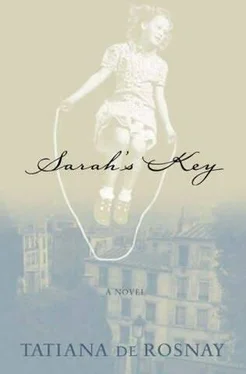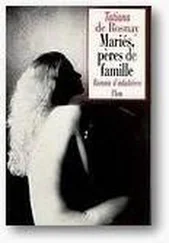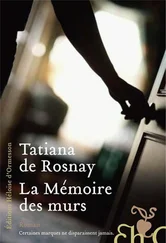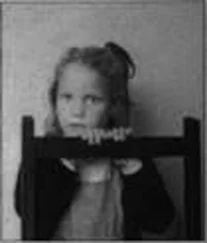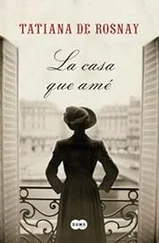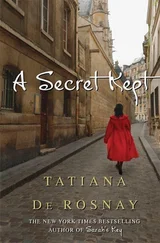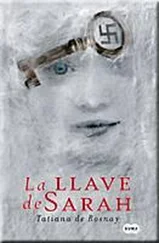Zoë, fresh out of school, was leaving for Long Island via New York with her godmother, Alison, one of my old friends from Boston, who often flew between Manhattan and Paris. I was to join my daughter and Charla’s family on the twenty-seventh. Bertrand did not take his vacation till August. We usually spent a couple of weeks in Burgundy, in the old Tézac house. I had never fully enjoyed my summers there. My parents-in-law were anything but relaxed. Meals had to be eaten on time, conversations kept mild, and children were seen and not heard. I wondered why Bertrand always insisted that we spent time there instead of going on a vacation, just the three of us. Luckily, Zoë got on well with Laure and Cécile’s boys, and Bertrand played endless tennis matches with his brothers-in-law. And I felt left out, as usual. Laure and Cécile kept their distance, year after year. They invited their divorced girlfriends and spent hours by the pool tanning studiously. The thing was to have brown breasts. Even after fifteen years I still could not get used to it. I never bared mine. And I felt I was laughed at behind my back for being the prude américaine. So I spent most of my days walking in the forest with Zoë, going on exhausting bike rides till I felt I knew the area by heart, and showing off my impeccable butterfly stroke while the other ladies languidly smoked and tanned in their minimal Erès swimwear that never went in the pool.
“They’re just jealous French cows. You look too damn good in a bikini,” scoffed Christophe, whenever I complained of those painful summers. “They’d talk to you if you were riddled with cellulite and varicose veins.” He made me guffaw, yet I could not quite believe him. But I did love the beauty of the place, the ancient quiet house that always felt cool even during the fiercest summers, the large rambling garden full of old oak trees and the view on the curvaceous river Yonne. And the nearby forest, where Zoë and I would go for long walks, when as a baby she had been entranced by the chirp of a bird, a twig with a strange shape, or the murky sparkle of hidden marsh.
The rue de Saintonge apartment, according to Bertrand and Antoine, would be ready in early September. Bertrand and his team had done a great job. But I had not yet envisaged living there. Living there now that I knew what had happened. The wall had been pulled down, but I remembered the secret deep cupboard. The cupboard where little Michel had waited for his sister to come back. In vain.
The story haunted me, relentlessly. I had to admit I was not looking forward to living in the apartment. I dreaded nights there. I dreaded bringing back the past, and I had no idea how to prevent myself from doing so.
It was hard not being able to talk to Bertrand about it. I needed his down-to-earth approach, longed to hear him say that despite the awfulness, we’d get over it, we’d find a way. I could not tell him. I had promised his father. What would Bertrand think of the whole story, I wondered. And his sisters? I tried to imagine their reaction. And Mamé’s. It was impossible. The French were closed up, like clams. Nothing must be shown. Nothing must be revealed. Everything was to remain unruffled, undisturbed. That’s how it was. How it had always been. And I found it increasingly tough to live with.
With Zoë gone to America, home felt empty. I spent more time at the office, working on a witty piece for the September issue about young French writers and the Parisian literary scene. Interesting and time consuming. Every evening, I found it harder and harder to leave the office, put off by the prospect of the silent rooms that awaited me. I took the long way home, reveling in what Zoë called “Mom’s long shortcuts,” enjoying the city’s fiery beauty at sunset. Paris was beginning to take on that deliciously abandoned look it harbored from mid-July. Shops had rolled their iron grids down, with signs reading CLOSED FOR VACATION, OPENING UP SEPTEMBER I. I had to walk for long stretches to find an open pharmacie, grocer’s, boulangerie, or cleaner’s. Parisians were taking off for their summer spree, leaving their city to indefatigable tourists. And as I walked home on those balmy July evenings, marching straight from the Champs-Élysées to Montparnasse, I felt Paris without its Parisians belonged to me at last.
Yes, I loved Paris, I had always loved it, but as I strolled at dusk along the Pont Alexandre III, with the golden dome of the Invalides gleaming like a huge jewel, I missed the States with such poignancy that the pain seared right to the pit of my gut. I missed home-what I had to call home, even if I had lived in France for more than half my life. I missed the casualness, the freedom, the space, the easiness, the language, the simplicity of being able to say “you” to each and every person, not the complicated vous and tu I had never perfectly mastered and which still threw me. I had to admit it. I missed my sister, my parents, I missed America. I missed it like I had never missed it before.
As I neared our neighborhood, beckoned by the tall brown grimness of the Tour Montparnasse that Parisians loved to hate (but that I was fond of because it allowed me to find my way back from any arrondissement), I suddenly wondered what Paris had been like under the Occupation. Sarah’s Paris. Gray-green uniforms and round helmets. The implacability of curfew and Ausweis. German signs posted up in Gothic lettering. Huge swastikas plastered over the noble stone buildings.
And children wearing the yellow star.

THE CLINIC WAS A well-to-do, cushy place, with beaming nurses, obsequious receptionists and careful flower arrangements. The abortion was to take place the following morning, at seven. I had been asked to come in the night before, on July 15. Bertrand had gone to Brussels, to clinch an important business deal. I hadn’t insisted for him to be there. I somehow felt better with him not around. It was easier to settle into the dainty apricot-colored room alone. At another moment, I would have wondered why Bertrand’s presence seemed superfluous. How surprising, considering he was part and parcel of my everyday life. Yet here I was, going through the severest crisis of my life, without him, and relieved at his absence.
I moved like a robot, mechanically folding my clothes, putting my toothbrush on the shelf above the basin, staring through the window at the bourgeois façades of the quiet street. What the hell are you doing? whispered an inner voice I had tried to ignore all day. Are you crazy, are you really going to go through with this? I hadn’t told anyone about my final decision. No one at all, apart from Bertrand. I did not want to think about his blissful smile when I told him I’d do it, the way he had pulled me close, kissing the top of my head with unrestrained fervor.
I sat on the narrow bed and took the Sarah file out of my bag. Sarah was the only person I could bear thinking about right now. Finding her felt like a sacred mission, felt like the only possible way to keep my head up, to dispel the sadness in which my life had become immersed. Finding her, yes, but how? There was no Sarah Dufaure or Sarah Starzynski in the phone book. That would have been too easy. The address on Jules Dufaure’s letters was no longer in use. So I had decided to trace his children, or grandchildren, the young men in the Trouville photograph: Gaspard and Nicolas Dufaure, men who would be in their mid-sixties or early seventies, I guessed.
Unfortunately Dufaure was a common name. There were hundreds of them in the Orléans area. That meant phoning each one of them. I had worked at it hard in the past week, spent hours on the Internet, poring over phone books, making endless calls, and then facing disappointing dead ends.
Читать дальше
